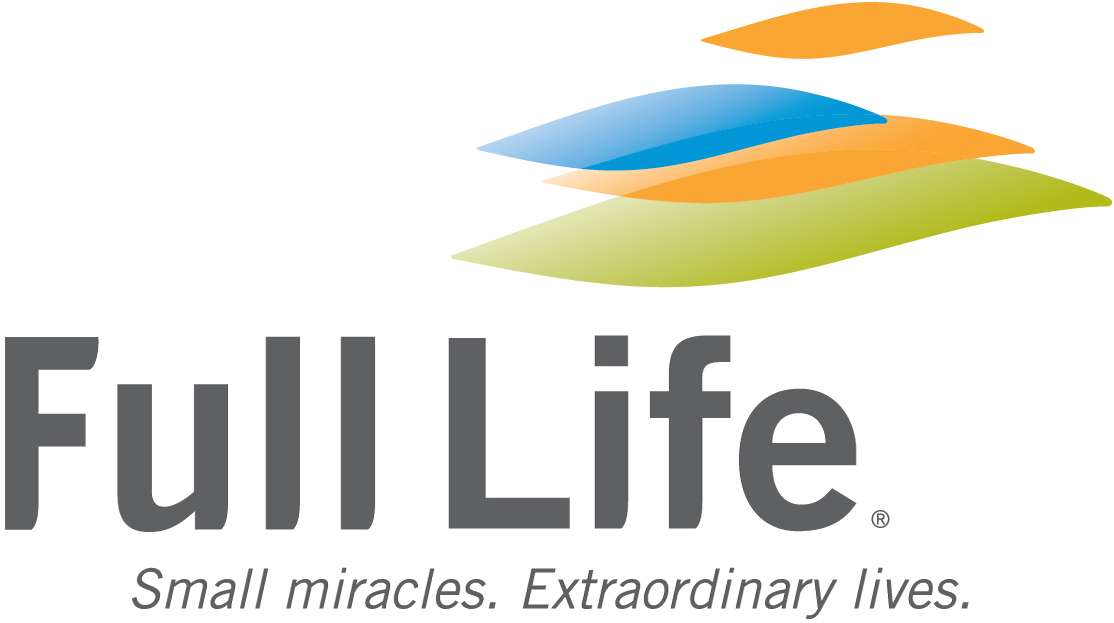Frontline reinforcement
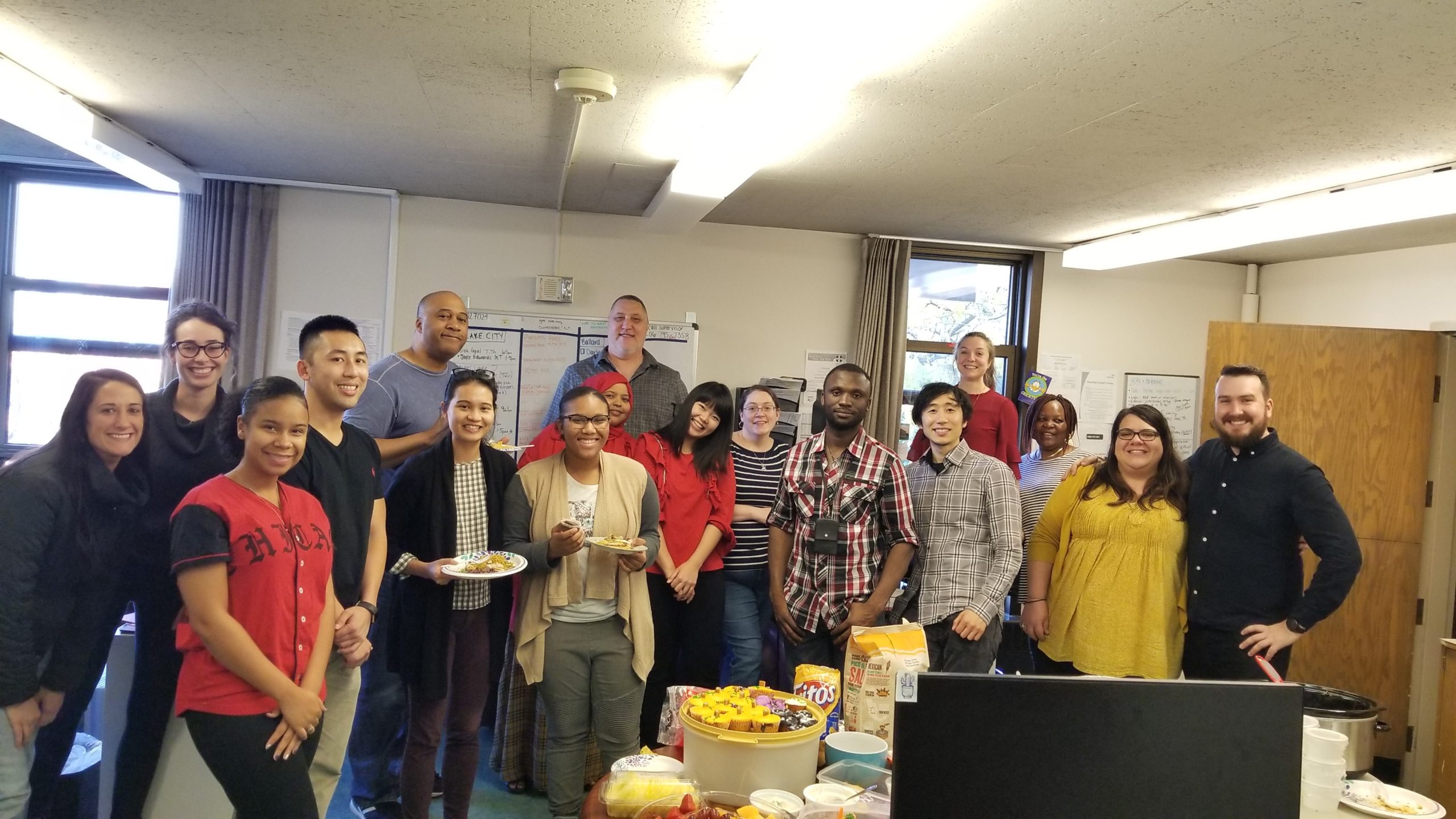
April 29, 2021
Home Care Supervisors rise to superhero status
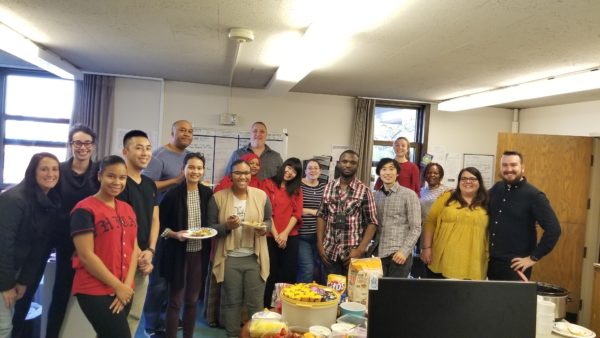
A pre-COVID gathering of Home Care staff.
While the COVID-19 pandemic has called for an increased diligence regarding everyone’s physical, social and mental needs, it has also revealed systems and people in place that were already operating at a high standard. Some of these unsung heroes are Full Life Care’s Home Care Supervisors.
Home Care Supervisors have exceeded expectations in caring for both caregivers and clients.
Since the pandemic hit more than a year ago, caregivers have faced a myriad of challenges. Some caregivers have felt unsafe having contact with clients. Others have had to deal with challenges like finding childcare or making appointments for coronavirus vaccinations.
In the midst of these difficulties, Home Care Supervisors comprise an important support system that holds everyone together and works to find solutions to each problem presented.
Full Life Care has about 750 clients and 350 caregivers, according to Gregory Schaffer, the Home Care Director.
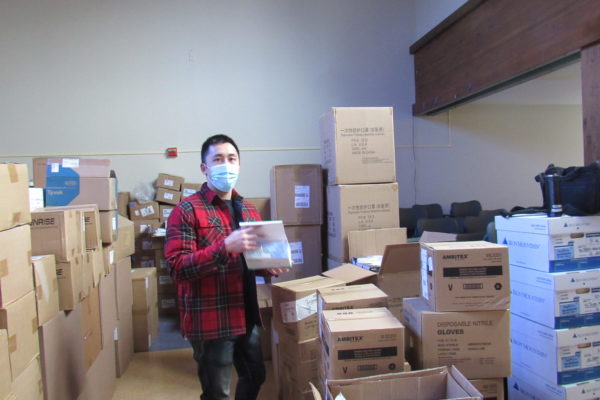
COVID Coordinator William Tran stands among boxes of PPE at Full Life’s Columbia City offices.
When a caregiver cannot make it to work or encounters an issue they do not know how to deal with, the supervisor is there to find a solution and take care of not just the client, but the caregiver as well.
“When I was working as a supervisor, every day would be different,” said William Tran, COVID Coordinator for Full Life’s Home Care Aides and a former Lead Supervisor. “There would be different problems we would have to address, different situations where clients or caregivers may feel depressed. At times, we are the only people for clients and caregivers — a lot of them might not have anyone else to talk to. We try to be the guide and support for them as much as possible.”
A study from the JAMA network found that symptoms of depression have been three times higher since the start of the pandemic. According to a report from the Washington State Department of Health, social isolation in particular from COVID-19 is associated with increased behavioral health problems such as depression or anxiety. Home Care Supervisors help to mitigate this risk by calling to check in on both caregivers and clients and being available to help with any problems they might have.
William estimates that he and the other 11 supervisors field over a hundred calls per day.
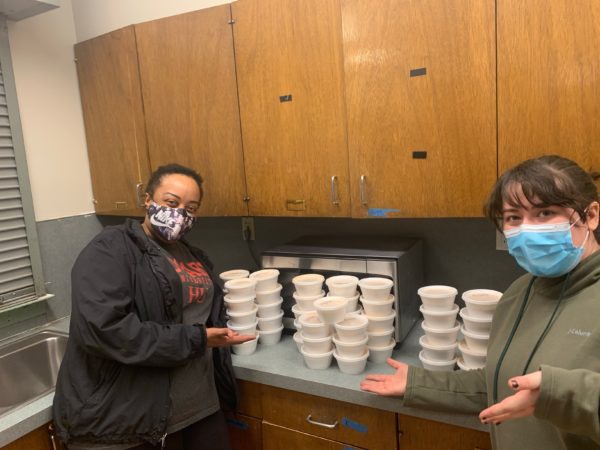
Home Care administrative assistants Monique McDaniel and Darcy Malone ready the sweet treats for staff.
Being a supervisor was more than a job to William. He said even after he moved on to COVID Coordinator, he would still call some caregivers to check in on them from time to time.
“I really tried to maintain that relationship, even if I’m not their supervisor, just because I want to be someone that they can talk to if they need anything and just to be available for caregivers in general,” William said.
Gregory said that when the pandemic first hit, the priority was physical needs — making sure caregivers had the protective gear they needed and making sure everyone was safe. As the pandemic continues, he wants to expand into other hierarchies of need, including improved care for mental health and emotional needs for caregivers.
Despite the challenges supervisors have faced, it is clear to see how much caregivers appreciate them. Persevering through so many difficult months and adapting to each change showcases their commitment to the people they serve.
Home Care Aide Felicia Loud summed up the heart behind the supervisors’ actions with this anecdote:
“There’s a (client) in her 80s, and she tells jokes. She’ll tell the same joke and they listen (during phone calls). They’ll go at it and say, ‘Oh, can you tell us a joke before you leave?’ It’s just really a wonderful gesture because it’s so easy to do. And they did it before the pandemic.
“They’re not just being nice because it’s like, you know, we need to pay more attention. They’re just genuinely nice people.”
This story by University of Washington communications student Paula Cornell was part of a collaboration earlier this year between UW and Full Life Care.
